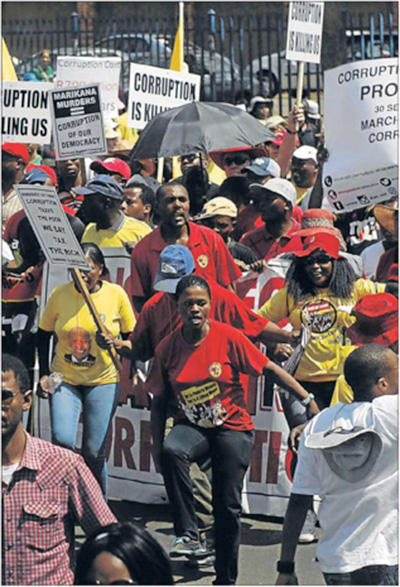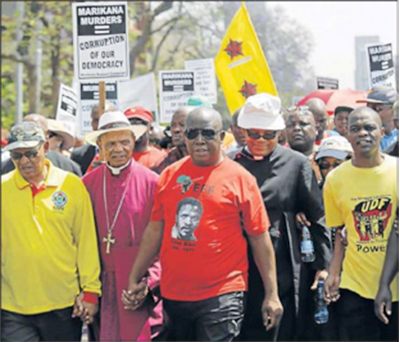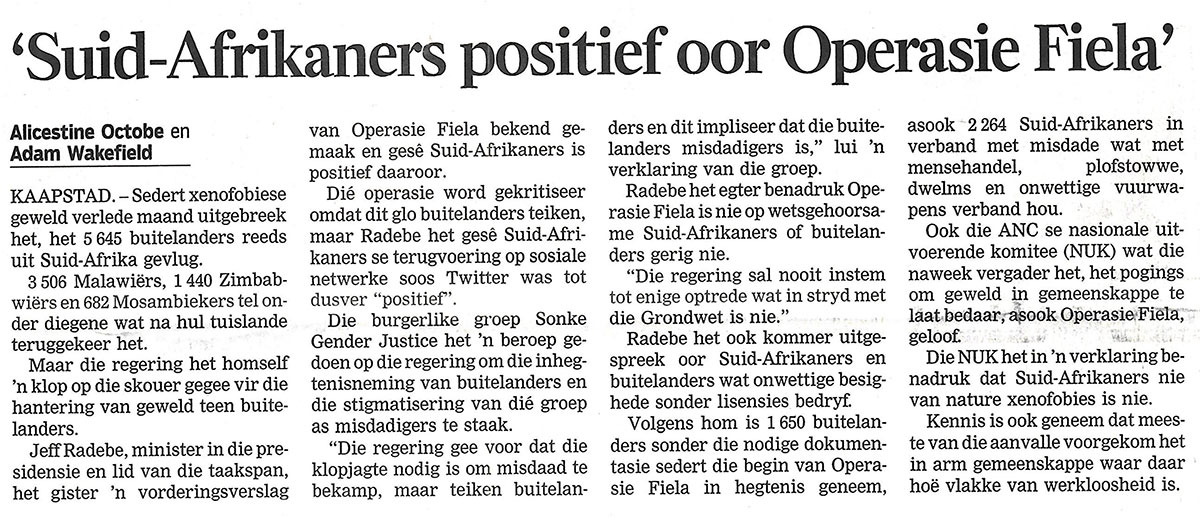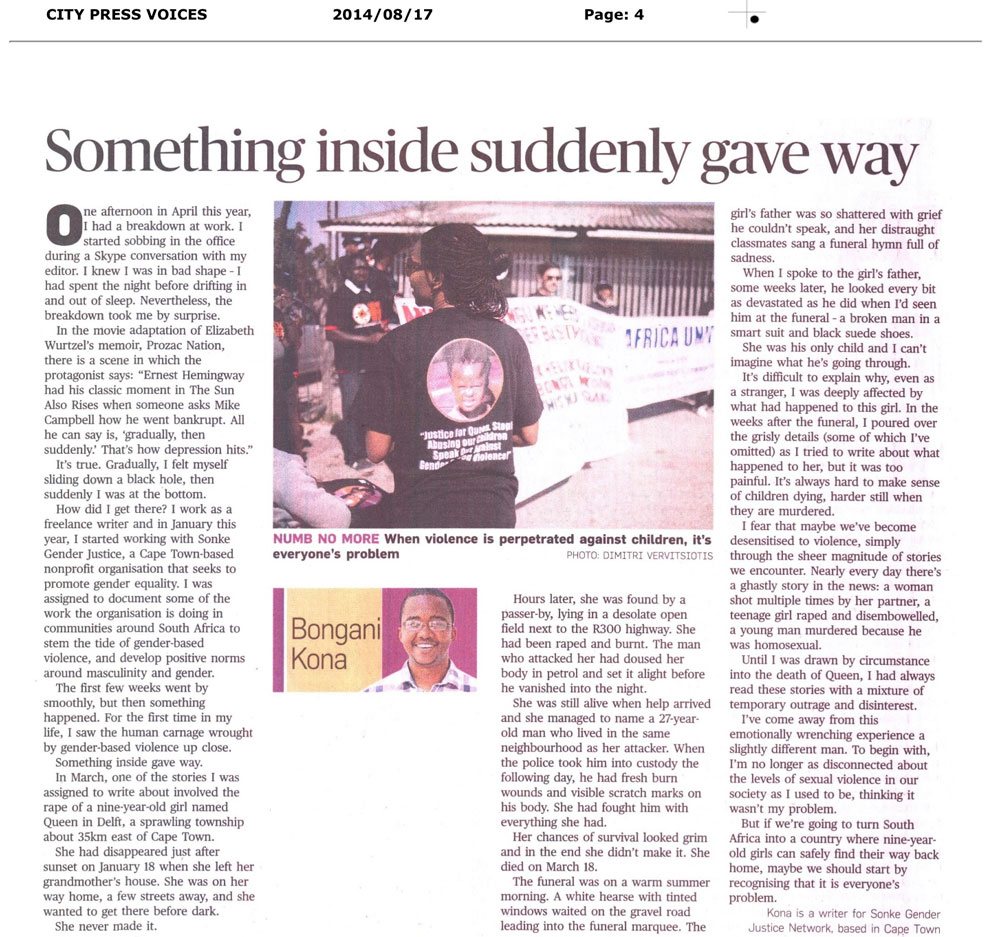She cannot get the picture out of her head… of the man she was to marry next year, gunning down her two sisters and the husband of one of them.
Yesterday Nonhlanhla Ndwandwe, 43, who survived the shooting spree, told how she saw her enraged 45-year-old fiancé mow down her family.
She survived by running away.
The man, who has been arrested, is accused of murdering Nompumelelo Ndwandwe, 45, and Zandile Molefe, 48, and her husband, Siphokuhle, 55, on Sunday afternoon in Ndwedwe, near Inanda.
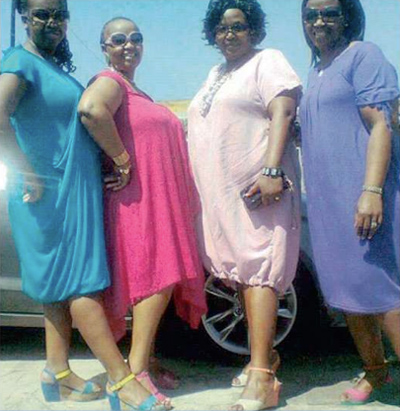
Speaking to the Daily News’s sister newspaper, Isolezwe, from her family’s home in KwaMashu, Nonhlanhla Ndwandwe said she had had a 10-year relationship with the alleged shooter.
“I don’t know how I slept last night because I keep seeing that picture in my head. I saw them being killed. I saw him shoot dead my brother-in-law in his car and my sister who ran away to a neighbour,” Nonhlanhla said.
She said she left him seven months ago because he was having affairs and she had had enough.
“On Sunday I asked my sisters and brother-in-law to come with me to fetch my things because I was afraid to go alone.”
Her neighbour, Nancy Gumede, was at home when the tragedy unfolded. She said she watched in horror as the suspect chased Nompumelelo into her house and fired.
“Siphokuhle was killed inside the car, while his wife (Zandile) was killed inside his house. I didn’t know what to do. My whole body went numb at seeing Nompumelelo being shot at point-blank inside my house,” Gumede said.
Gumede said the suspect had paid lobola for Ndwandwe, a Transport Department employee, and that they had been planning a white wedding.
The neighbour said the two had had a quarrel and Ndwandwe had returned to her family home. She said the couple had built the house in Ndwedwe together and had been living there since its completion.
“On Sunday, Nonhlanhla arrived with her sisters and brother-in-law. Her fiancé was not home that morning, so because we know each other as neighbours she came over to greet.”
“We had a small chat, with her telling me that she came for some of her linen and kitchenware. At around 10am the man arrived and she left me, to go into the house,” Gumede said.
She said it was quiet until about noon when Ndwandwe came to say her goodbyes.
“She said she was leaving without the things she had come back for. The man refused to let her take the items, saying that she could only remove stuff from the house after the relevant elders had been involved in their separation.
“He said since they built the house together, then everything was to be shared all at once at the right time. She then left with a heavy heart,” Gumede said.
A few minutes later, shots rang out and the women were heard screaming.
Another neighbour, who asked not to be named, said: “Yes, this is sad, but remember this is a family matter. I don’t know what could have triggered such behaviour. The man has been residing alone in the house for a while, although I know them as a couple.”
Social Development MEC, Weziwe Thusi, said she had sent social workers to the family.
Provincial police spokesman, Major Thulani Zwane, said the suspect had since been arrested and was in possession of a licensed firearm.
He faces three murder charges and will appear in the Ntuzuma Magistrate’s Court soon.
Tanya Charles, policy specialist for Sonke Gender Justice, said some men believed they owned their girlfriends or wives.
“They find it difficult to have a relationship where both parties contribute towards its ‘healthy state’. Also, women who are murdered by someone known or close to them die painful deaths because of the betrayal of their feeling of security, and the shock of realising that the one close to them is actually the one who is dealing the deadly blow,” Charles said.
